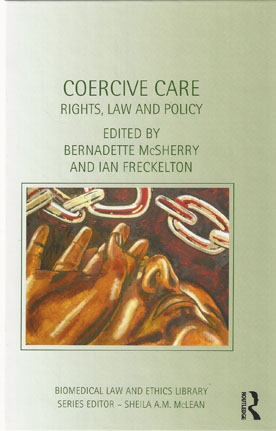
There has been much debate about mental health law reform and mental capacity legislation in recent years with the UN Convention on the Rights of Persons with Disabilities also having a major impact on thinking about the issue.
This edited volume explores the concept of 'coercive care' in relation to individuals such as those with severe mental illnesses, those with intellectual and cognitive disabilities and those with substance use problems. With a focus on choice and capacity the book explores the impact of and challenges posed by the provision of care in an involuntary environment.
The contributors to the book look at mental health, capacity and vulnerable adult's care as well as the law related to those areas. The book is split into four parts which cover: human rights and coercive care; legal capacity and coercive care; the legal coordination of coercive care and coercive care and individuals with cognitive impairments.
The book covers new ground by exploring issues arising from coercion to a variety of persons with vulnerabilities by reason of different disabilities, all of which have in common that the capacity to provide consent to treatment and care is impaired by reason of their condition.